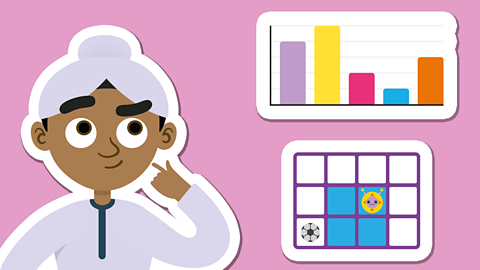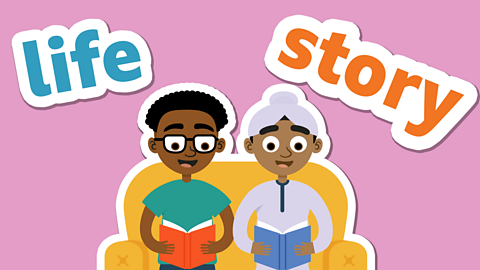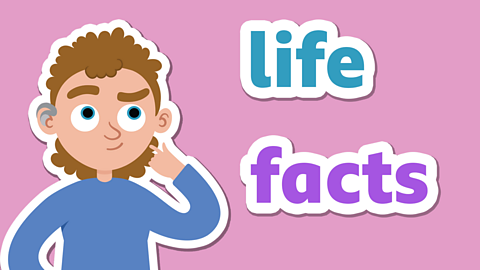Watch: What is persuasive writing?
When you persuade someone in your writing, your aim is to get them to agree with your point of view.
Watch this video where teacher Mr Smith explores persuasive writing and gives you some examples of when itÔÇÖs used.
How is persuasive language effective? Watch this Teacher Talk to learn more.
Using persuasive writing

Persuasive writing comes in different forms:
Letters that try to persuade the reader to do something or think in a certain way.
Adverts that aim to persuade people to buy something.
Reviews of things, such as films or books, where the writer gives their opinions and tries to influence (change or impact) what the reader thinks.
You can also persuade people when speaking, in a speech or presentation that you have prepared.

Making your writing persuasive

When you are writing to persuade people, itÔÇÖs important to say why the reader should agree with you. You need to give your reasons, otherwise your reader may not believe you!
A good way to make your writing more persuasive is to think of the following:
**P**ersonal - keep your writing friendly.
**E**motive - use words that make your reader have strong feelings.
**R**hetorical questions - to make your reader stop and think.
**S**ay it again - repeat your message!
**U**ndermine - mention different opinions to yours and say why they are wrong.
**A**necdote - a short, funny real-life story to make your reader feel they know you.
**D**irect - use the words you and your to make your reader feel special.
**E**xaggeration ÔÇô make a big deal of what you say!


Top tip!
- Rhetorical questions donÔÇÖt need an answer, but are great for grabbing a readerÔÇÖs attention. Saying things like ÔÇśIsnÔÇÖt that amazing?ÔÇÖ or ÔÇśWhy would you not want to buy this?ÔÇÖ can be very effective when youÔÇÖre trying to persuade someone.

Watch: Persuasive writings in adverts
Watch this video next that explains the effect of using persuasive writing in advertising - an area where writing persuasively can be very useful!
What effect does advertising have on us through the language it uses?
Persuasive techniques

Adverts and brochures don't just give the reader information - they use clever ways, or 'techniques', to try to make the reader buy a product.
Adverts keep their message short and catchy so it's easy to remember, and often use jokes or word tricks to entertain their reader! By being entertained, the reader is more likely to want to spend their money!
Look at the examples in the table below.

| Persuasive technique | Example |
|---|---|
| Rhymes | Don't you wish you could buy a fish? |
| Onomatopoeia (a word that is like the sound it describes) | Listen to that fish sizzle in the pan! |
| Alliteration (using words in a sentence that have the same first letter) | Fry our flavoursome fancy fish! |
Activity 1
Activity 2
Look at the following opinion statement:
People should work as a team.
Click on the image to the right to see a short magazine article that argues this opinion, using persuasive writing.
Read the article carefully and then draw a table like the one below on a piece of paper. Use your table to note down examples of persuasive writing as they appear in the article.
Some examples have been given, to start you off. Look back at the Learn section if you need a recap on some of the features of persuasive writing.

| Ways to persuade the reader | Examples |
|---|---|
| Personal tone | Yes, you feel |
| Emotive words | |
| Rhetorical questions | What is it like to feel left out? |
| Say it again | |
| Undermine | |
| Anecdote | |
| Direct | |
| Exaggeration | over and over and over |

Top tip!
- You could place some of the examples of persuasive writing in more than one row in the table.

To check your answers, you can use this .
Activity 3

Now have a go at doing some persuasive writing of your own!
You need to try to get your reader to agree with the following opinion:
People should always be on time.
Write a persuasive paragraph of at least 60 words. Use the example paragraph and table in Activity 2 to remind you of the things to include in your writing.

Top tip!
- Share your writing with a friend or family member and see if you can persuade them to agree with you!
Play our fun English game Crystal Explorers. gamePlay our fun English game Crystal Explorers
Use grammar, punctuation and spelling skills to explore jungles, caves and tombs on your mission!

More on Non-fiction
Find out more by working through a topic
- count11 of 18

- count12 of 18

- count13 of 18

- count14 of 18
